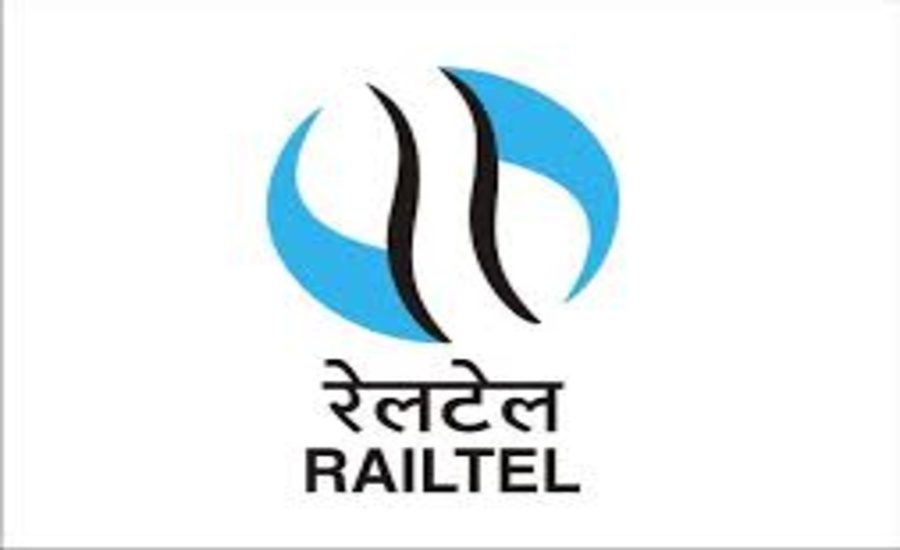New Delhi: Delhi-based VEDA Aeronautics and the state-owned RailTel Corporation of India Ltd. (under the Ministry of Railways) have entered into a Memorandum of Understanding (MoU) to jointly develop advanced unmanned systems (UAVs/drones) for multiple strategic applications including railways, disaster-management and the Indian Armed Forces.
This collaboration reflects India’s growing push towards indigenous defence technology, digital infrastructure and integration of aerospace and communications capabilities.
Background of Veda Aeronautics and RailTel MoU
VEDA Aeronautics is a Delhi-based aerospace startup engaged in development of unmanned aerial vehicles and high-speed air-launched platforms. RailTel Corporation, a public sector entity under the Ministry of Railways, runs nationwide fibre-optic and digital communication infrastructure (including RailWire broadband).
The MoU, announced on 12 November 2025, aims to combine VEDA’s aerospace expertise with RailTel’s communications network to build next-generation unmanned systems.
This partnership sits within India’s broader thrust of “Atmanirbhar Bharat” in defence, digital infrastructure expansion and smart-rail modernisation.
Importance of the Veda Aeronautics and RailTel MoU
This MoU is significant on several fronts:
Defence capability boost: The collaboration will support the Indian Armed Forces with unmanned platforms for intelligence-surveillance-reconnaissance (ISR), monitoring and tactical support roles.
Railway operations & security: For Indian Railways, unmanned systems will enable improved track inspection, real-time monitoring, enhanced security surveillance and data-driven maintenance.
Disaster-management application: The UAVs/drones could be deployed for rapid damage assessment, search & rescue, supply delivery in remote or disaster-struck regions. With RailTel’s connectivity backbone, even remote zones can be linked.
Indigenisation & self-reliance: By combining domestic aerospace and digital infrastructure firms, the partnership aligns with government emphasis on self-reliant defence technology and digital India.
Cross-sector synergy: The integration of communications and unmanned aerial platforms from rail to defence to disaster-response highlights a multi-domain technology convergence.
Challenges of Veda Aeronautics and RailTel MoU
While the objectives are ambitious, there are several hurdles to be addressed:
- Technical integration: Combining high-performance aerospace platforms with reliable nationwide communication networks is complex, especially in remote or rugged terrain.
- Regulatory & certification issues: Defence, rail and disaster-management platforms require approvals, safety certifications, spectrum licensing (for communication links) and interoperability standards.
- Cost & manufacturing scale-up: To derive full advantage, the projects must scale manufacturing, ensure cost-effectiveness and domestic supply-chain readiness.
- Operational deployment: For railways, disaster-zones and armed forces, operating unmanned systems in varied environments (mountainous, desert, high-altitude) will test performance and reliability.
- Data-connectivity reliability: Even with RailTel’s network, ensuring secure, low-latency, resilient communication in conflict or disaster zones is a challenge.
Implications of Veda Aeronautics and RailTel MoU
- Strategic defence edge: Successful deployment of unmanned systems enhances India’s surveillance, response and combat capabilities, especially in contested border regions.
- Rail infrastructure safety & efficiency: UAV-enabled inspections and monitoring can reduce accidents, detect sabotage or defects early and improve overall rail safety.
- Disaster response readiness: With India vulnerable to natural disasters, unmanned systems enabled by connectivity can cut response times and improve rescue outcomes.
- Economic & industrial impact: Domestically manufactured unmanned systems will open new industrial opportunities, job creation and export potential within the defence-aerospace sector.
- Technology ecosystem growth: Such collaborations signal a maturing ecosystem for unmanned systems, communications backbone and cross-sector innovation in India.
Way Forward
To turn this MoU into operational success, the following steps are key:
- Detailed project roadmap: VEDA and RailTel should finalise clear timelines, specification sheets for unmanned platforms, connectivity standards, testing protocols and pilot deployment schedules.
- Pilot trials & demonstration: Conduct field trials for railway track inspection, disaster-zone delivery and armed-forces ISR missions to validate performance in real-world conditions.
- Production & supply-chain readiness: Develop domestic manufacturing capacity for UAVs, sensors, communication modules, ensuring indigenised content and cost efficiency.
- Regulatory and certification alignment: Secure air-space clearance, rail network permissions, communications spectrum, and defence certification to streamline deployment.
- Training & operational integration: Train personnel in armed forces, rail operations and disaster-management agencies to operate, maintain and integrate unmanned systems effectively.
- Network & connectivity robustness: RailTel must ensure secure, redundant and high-availability communication links including in austere environments, with encryption and cyber-security protocols.
- Scale-up & export planning: Once validated, scale production for large-scale deployment and explore export opportunities for friendly nations, leveraging “Made in India” advantage.
About Railtel Corporation of India
RailTel Corporation of India Ltd. is a Mini Ratna (Category-I) PSU under the Ministry of Railways, known for operating one of India’s largest neutral telecom networks. With its extensive pan-India optical fiber infrastructure, data centres, RailWire broadband services, and mission-critical connectivity solutions, RailTel plays a key role in strengthening the digital backbone of Indian Railways and supporting national digital transformation initiatives.
Read Also: RailTel Achieves 27% Growth in Q2 FY26, Reports Rs 966 Crore Income and Announces Interim Dividend




























